"The change I have seen in my children is phenomenal. They want to explore more about topics taught in school!"
Enquire Now Download ProspectusBritish Lower Secondary is typically for learners aged 11 to 14 years. It helps learners prepare for the next step of their education, helping them to become confident, responsible, reflective, innovative and engaged.
British Lower Secondary prepares learners for Upper Secondary. It builds on the foundations of Primary, although it is not essential to have completed that stage before beginning Lower Secondary. British Lower Secondary provides excellent preparation for Cambridge Upper Secondary and other educational systems, including Edexcel.
The curriculum aims to deliver core subjects and develop creativity, expression, and well-being. A range of subjects ensures that teaching and learning appeal to many learners and prepares them for future learning by introducing them to new topics. Teachers are supported with a stimulating and varied curriculum, which challenges and inspires learners to be lifelong learners.
A clear path to progress, step by step
British Lower Secondary provides a strong foundation for learners before progressing through the Upper Secondary & Advanced Level Programmes in an age-appropriate way. The curriculum ensures that even the learners without studying British Primary meet the learning objectives effectively. Teachers focus on learning outcomes, knowing that the sequencing of learning aligns from stage to stage. Learners will be familiar with the content and skills from the previous stage and well prepared for the next.
A global learner in a local context
British Lower Secondary encourages learners to understand their culture, community, and identity in the broader world. The program celebrates local culture while helping learners to discuss global issues. Activities in the schemes of work are internationally focused, but they can be applied in all local contexts so that learners can develop a broad outlook.
A flexible approach
British Lower Secondary programme is flexible, so it can be adapted to the learner's needs and works with the local context. British Lower Secondary is designed to stretch, challenge, and inspire all learners, whatever their cultural context.
All British Lower Secondary subjects include a set of learning objectives that provide a structure for teaching and learning and a reference against which you can check learners’ attainment and skills.
The learning objectives are divided into clearly sequenced areas called ‘strands’ that are taught separately or together. All the British Lower Secondary subjects and learning objectives ensure a smooth progression throughout British Lower Secondary and onwards into British Upper Secondary and Advanced levels.
The British Curriculum at 21K School will offer the following subjects from Grades 6 to 8 (years 7 to 9).
Core Subjects:
Capstone Subjects (any one):
Add-on Subjects:
21K School adopts Cambridge University Press Coursebooks and Workbooks
Cambridge Lower Secondary English is intended for first-language learners or those with equivalent competence in English. Learners build on their understanding and use of language features and become more sophisticated in using language effectively in various oral and written contexts. They also continue to develop their literary analysis and critical reading skills. This programme provides learners with the language and literacy skills they need for further study and life. In addition, it prepares them for Cambridge Upper Secondary qualifications in English literature, language and drama.
Cambridge Lower Secondary Mathematics curriculum continues to emphasise Thinking and Working Mathematically. Algebra is formally introduced, building on concepts from the Number strand in the Primary programme, alongside Numbers, Geometry and Measure and Statistics and Probability. This programme leads to upper-secondary qualifications in mathematics. It also provides learners with the numeracy and statistical literacy needed for life and further study in various subjects (such as sciences and social sciences).
Cambridge Lower Secondary Science curriculum framework builds further understanding of Biology, Chemistry, Physics, Earth and Space and, Thinking and Working Scientifically. All of the science disciplines are taught in each stage so that learners develop an integrated view of science. The emphasis on scientific investigations continues from primary, with learners being introduced to specialist scientific equipment, where available. This programme prepares learners for all the scientific qualifications available at the upper secondary level.
Cambridge Lower Secondary Computing curriculum furthers learners' knowledge of programming languages by introducing text-based software. Learners will explore algorithms using flowcharts and pseudocode, spreadsheets and databases, data transfer across networks and new technologies such as Artificial Intelligence.
Cambridge Lower Secondary Global Perspectives continues to use a range of topics to develop the skills of research, analysis, evaluation, reflection, collaboration and communication. Learners identify a more comprehensive range of personal, local and global perspectives and evaluate why these may be different. As with the primary programme, it is designed to be delivered flexibly through specific lessons, existing subjects or full days of activities.
We at 21K school believe in an inquiry-based learning approach as it allows learners share their ideas and questions about a topic. This helps foster more curiosity about the material and teaches skills learners can use to continue exploring issues they are interested in.
Helping learners reach their full potential through different learning approaches builds social and emotional learning skills, college and career-ready skills and enhances problem-solving abilities. This emphasises the learner’s role in the learning process, giving them the autonomy to explore, ask questions and share ideas.
Inquiry-based learning uses different approaches, cultivating skills through guided education and small-group discussions to apply reasoning to reach conclusions.
From a learner’s perspective, inquiry-based learning helps focus on open questions or problems to use evidence-based reasoning, creative thinking and problem-solving to form a conclusion they can defend.
In an inquiry-led learning model, learners actively participate in their own learning experience. Ultimately, this leads to a sense of independence that encourages learners to continue asking questions and seeking answers long after leaving the classroom.
Independent learners know that knowledge acquisition never ends, and they will be more motivated to come up with solutions to the most challenging problems an organisation or group faces.
Learners will engage in approximately an hour and half of self-learning every day throughout the year, where assignments will be given to hone skills such as research, presentation, communication etc. Different learners can pace their learning according to their preferred learning styles.
From a facilitator’s perspective, this learning approach focuses on helping learners get from the curiosity stage into critical thinking and deeper levels of understanding. They guide learners through the investigation process, encouraging them to ask questions through structured inquiry activities. This is usually done by utilising group or individual projects, case studies, research tasks, and unique exercises created for individual or specific groups of learners.
The Habits of Mind (HOM) embedded into the 21K curriculum is a tested, proven curriculum for creating strong learners and educators. Habits of Mind are the attitudes and dispositions that help learners become better thinkers and problem solvers who know what to do when the answers are not immediately apparent. Art Costa and Bena Kallick propose 16 habits (such as Listening with Understanding and Empathy or Persisting) that, when engaged, can build learner success in the classroom, in the workplace, and life. We endeavour to incorporate HOM into our pedagogical practices and experience the realisation through the action of learners in real-life situations.
The objective of including CAS activities is to make learners well-balanced. We must focus on the academic aspect of the school, but it is also essential that we do activities outside of school that help us determine our interests and make us leave our comfort zone. CAS allows learners to develop creative skills and helps them maintain a healthy lifestyle. It is most rewarding since it will enable learners to do several things for communities that need help or support and try new and different activities.
At 21K, the best way learners can enhance their personal and interpersonal development is through learning and experience; and CAS does just that. The CAS experience provides opportunities for self-determination and collaboration with others and fosters a sense of accomplishment and enjoyment that learners achieve from their work. In essence, the program is designed to open opportunities for participation in enriching activities.
21K school offers learners a variety of experiences to develop their skills and build on their socio-emotional experiences. Beyond the regular classes and activities, learners also participate in celebrations, festivals, inter-house activities, Lit-Fest, Shark Tank, Mathalon, Social Fest, Art Fest, MUN, Science Exhibition and more.
Fields Trips, Excursions and Learner Exchange Programme allows learners to engage with other children across cities and countries.
Field trips
Field trips provide learners with different ways of viewing the world, communicating with it, successfully introducing new questions and issues of daily life, and finding answers to generate knowledge. In the end, inquiry-based learning teaches the learners a greater understanding of the world they work, communicate, learn, and live. At 21K, field trips also allow learners to socialise and meet peers outside their online classes.
Annual Excursions
At 21K, the annual excursion is primarily an opportunity to consolidate the bond between learners and facilitators. The trip usually provides our learners with experiences outside their daily activities, such as camping with teachers and classmates. Our past experiences have been insightful. We have planned for visits to locations that provide ample opportunities to facilitate learning through engaging activities while consolidating the bond with the community.
Learner Exchange programme
We aim for our learner exchange programme to offer broad-based benefits and outcomes for learners keen to embark on a national or international adventure. These programmes are intertwined and come together to constitute the overarching exchange experience. Through our exchange programmes, we aim to enhance international learning and knowledge, propel learners towards acceptance and understanding of an array of different cultural and community perspectives, achieve language acquisition through practical immersion., increase awareness and adoption of alternative, multi-faceted approaches to learning, enhance analytical and problem-solving skills, develop greater interest in global issues as well as a broader general knowledge.
Our vision is to create a joyful learning environment which includes an experiential learning mode which is interactive, inspiring, and stress-free that induces true love for learning and instills one, self-responsibility and commitment towards life. This dream comes to life through the actions of our dynamic team of facilitators who work effortlessly and selflessly. Due to the vibrancy and creativity of our teaching pool, we can put life into teaching-learning sessions.
Facilitators concentrate on the learning process and encourage collaboration and self-learning. The approach stimulates discussions, asks questions to get the group thinking, and enables peer-to-peer communication. They help learners identify different ways of learning that work for them, take responsibility for their learning, and contribute to group sessions.
The Crew, at 21K, are hired based on their qualification, training, and expertise. They comprise members who believe in the vision and mission of the school and have the experience to add value to the organisation.
The prerequisite for a job at 21K school is the qualification and a minimum of two years teaching in an international board, working full-time with 21K School. The experience ranges between 5 -10 years at the leadership level. Regular guest lectures and workshops from professionals are also part of the academic delivery of content.
Crew members receive in-house training at various levels throughout the year. Apart from in-house training, they attend training conducted by CAIE. The facilitators receive much exposure to webinars, podcasts and conferences conducted online globally. Global trends are shared through blogs, vlogs and resource persons who share their experiences with our team. A select team enrol in various certification programs as part of professional development. All Facilitators are trained in aspects of child safety, cyber security and cultural sensitivity.
Leadership
The leadership at 21K school aims to transform the school’s vision into reality. The leadership works tirelessly to build an organised and effective system through meticulous attention to detail, realistic target-setting and precise scheduling.
The Heads of Schools, Principals and Coordinators who form the leadership team are qualified, trained, and experienced individuals in Cambridge and other international boards. They are well versed with the requirements of the boards and align themselves towards the vision and mission of 21K School, CAIE, and Edexcel.
The Academic & Pedagogical Training Head looks into the training requirement of the School and updates the leadership for participation.
Learner Support
The importance of technical support services in the 21K School heightens as the world embraces digital innovations. The Technical crew is a strong team comprising specialists in various technological aspects required in an online set-up. Through the help of technical support staff, schools can have a more streamlined and systematic connection — making learning easier and fun.
Learner Success Team liaises between the parents and academic, technical and admissions crew. They are the point of contact to set up meetings and resolve queries within a turnaround time of 24 hours.
Assessment is central to the teaching and learning process in the classroom, not only to measuring learner achievement and progress. The following different uses of assessment are often held:
Coursebooks and Workbooks from Cambridge University Press for English, Global Perspectives, Mathematics, Computing and Science are delivered to the learner’s residence along with books for Second and Third Language from other Publishers. Learner ID card, Almanac and Planner, and a goodie bag are part of the Learning Kit.
Learners will get access to our web-based Learning Platform, and Parents will have access to Mobile Apps on Android and iOS. Through the Learning Platform, learners can access the following resources:
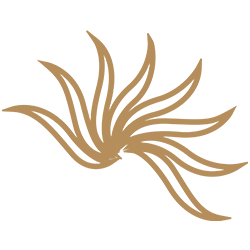
Regular Assessments
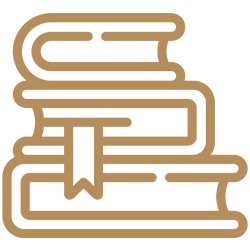
Textbooks & Workbooks delivered at home
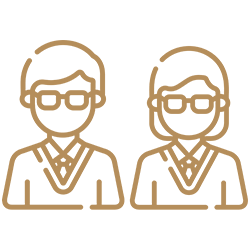
24 Learners in a class
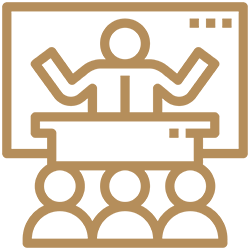
Live Engaging Classes
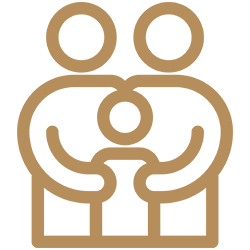
Academic Structure and support to parents
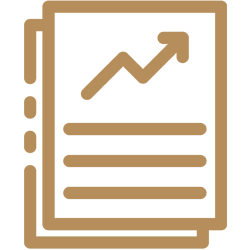
Access instant progress report of your child